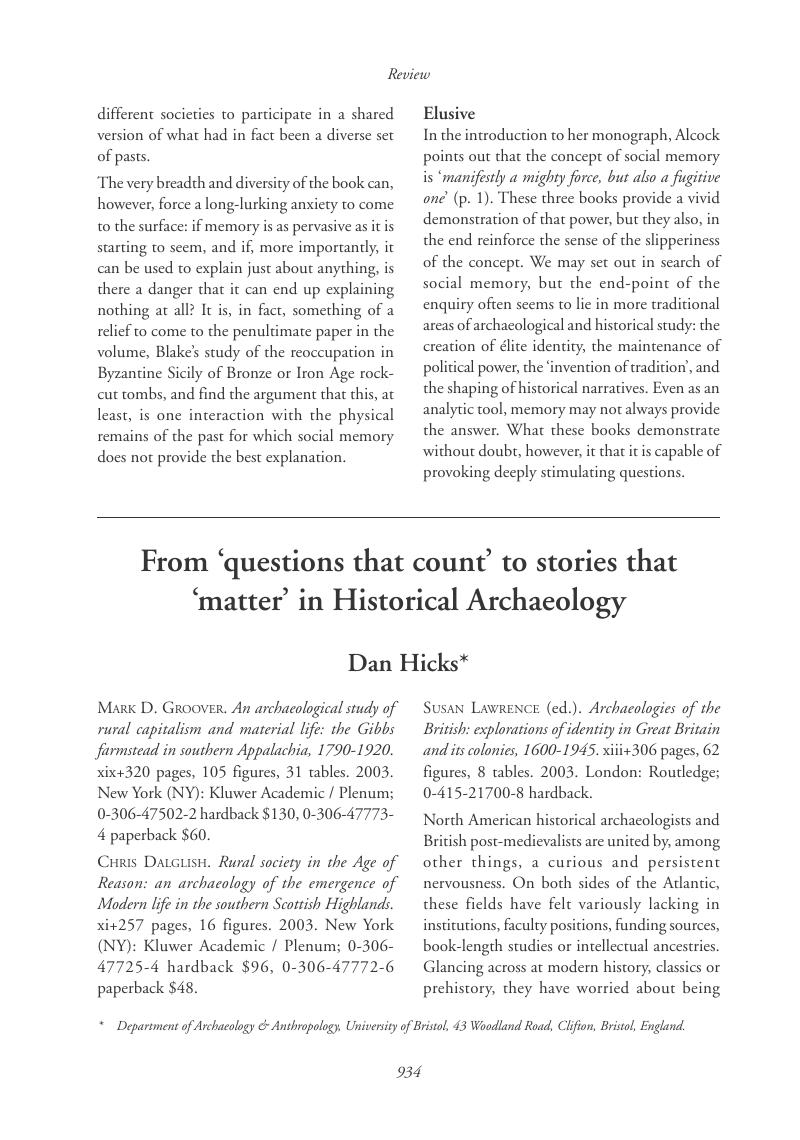Crossref Citations
This article has been cited by the following publications. This list is generated based on data provided by Crossref.
Gilchrist, Roberta
2005.
Introduction: scales and voices in world historical archaeology.
World Archaeology,
Vol. 37,
Issue. 3,
p.
329.
Hicks, Dan
2005.
‘Places for thinking’ from Annapolis to Bristol: situations and symmetries in ‘world historical archaeologies’.
World Archaeology,
Vol. 37,
Issue. 3,
p.
373.
Hicks, Dan
2008.
Improvement: What Kind of Archaeological Object is it? A Review Article.
Journal of Field Archaeology,
Vol. 33,
Issue. 1,
p.
111.
Voss, Barbara L.
2010.
Matter Out of Time: The Paradox of the “Contemporary Past”.
Archaeologies,
Vol. 6,
Issue. 1,
p.
181.
Giles, Kate
and
Jones, Sarah Rees
2011.
Poverty in Depth: New International Perspectives.
International Journal of Historical Archaeology,
Vol. 15,
Issue. 4,
p.
544.
Giles, Melanie
2016.
Death, burial and ritual in Iron Age Britain and the Netherlands.
Antiquity,
Vol. 90,
Issue. 352,
p.
1108.
JENKINS, MATTHEW
2018.
The view from the street: the landscape of polite shopping in Georgian York.
Urban History,
Vol. 45,
Issue. 1,
p.
26.



